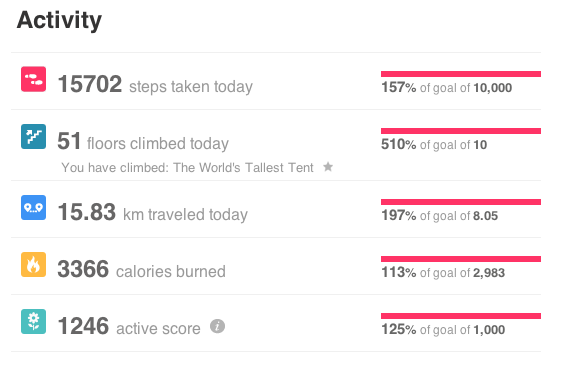 Here is something you don’t need: a bra that keeps track of your fitness. Half of you don’t even have breasts. And the other half, well, you don’t need a smart bra either.
Here is something you don’t need: a bra that keeps track of your fitness. Half of you don’t even have breasts. And the other half, well, you don’t need a smart bra either.
Yet it exists. In fact, it’s debuting this week at the Consumer Electronics Show. On its blog, the bra’s maker — a company that also offers a fitness-tracking shirt for men — claims that women have been clamoring for this undergarment. “After much applause, and a plethora of requests from eager women who wanted in on the action too, the day has finally come for us to reveal the OMbra.”
Fitness-tracking “wearables” are nothing new. For years athletes have relied on watches or smart phones or clip-on devices to determine their distance and pace. But today’s tech is downright sophisticated. My new Fitbit wristband — a Christmas present — tracks the basics, like distance, as well as heart rate and sleep. So I can tell you that today I walked 6,587 steps and climbed 9 floors. My resting heart rate averaged 61 beats per minute, but when I took the dog for a walk, it spiked to 155. I slept nearly seven hours, but I experienced eight periods of “restlessness.”
My Fitbit ain’t got nothing on the OMbra, however. The 150-dollar sports bra, made of “four-way stretchable, light fabric,” monitors distance, cadence, pace, heart rate, and calories. But with the OMbra, you get other measurements too: for example, running economy, breathing rhythm, fatigue, and biometric effort.
These metrics might help a dedicated athlete fine-tune her performance, but they’re unlikely to be of much use to the average consumer, a mother-of-three who is looking to lose a few pounds. In fact, it’s not clear how any of this data will impact our health. Will I walk 7,000 steps tomorrow? Climb more floors? Get more sleep? Be less restless?
For me, the problem isn’t lack of data. It’s lack of motivation. It’s hard to find time to go to the gym. I could jog outside, of course, but that winter wind bites. And my running tights are dirty. And the dog seems to have made off with one of my windbreaker mittens. And my Fitbit’s battery is nearly dead, so the run wouldn’t count anyway. Knowing how many steps I’ve walked (or not walked) might inspire me to hop on a treadmill. But it’s just as likely that I’ll come up with more excuses. A deluge of data won’t change the fact that it’s easier to do nothing than to do something.
Some tech companies envision a day when the data will bypass the consumer, and go directly to healthcare professionals. But not even your doctor wants all this data. The fitness tracker industry encourages people “to collect a mass of non-specific data about themselves during times when they don’t have any particular health concern, then expects their physician to do the work of a soothsayer, reading an exact diagnosis from a thicket of numbers about a person’s weight or heart rate,” writes Forbes contributor Michael Thomsen.
And then there’s this: To benefit from the data generated by these next generation wearables, you have to use them. One survey found that more than half of all consumers who owned an activity tracker have abandoned the device. I’m hoping I won’t be one of them.
The makers of OMbra claim that it’s “a bra in perfect tune with its time.” But I think all these fitness wearables might be ahead of their time. Their capabilities far surpass our needs. We’ve got the data. Now what do we do with it?
***
Image courtesy of Serdar Kilic on Flickr
“And my Fitbit’s battery is nearly dead, so the run wouldn’t count anyway.” Ha! So true. As one of the 50% who abandoned my Fitbit sometime around April this year, I have to say that I think you are spot on. Good luck with yours!